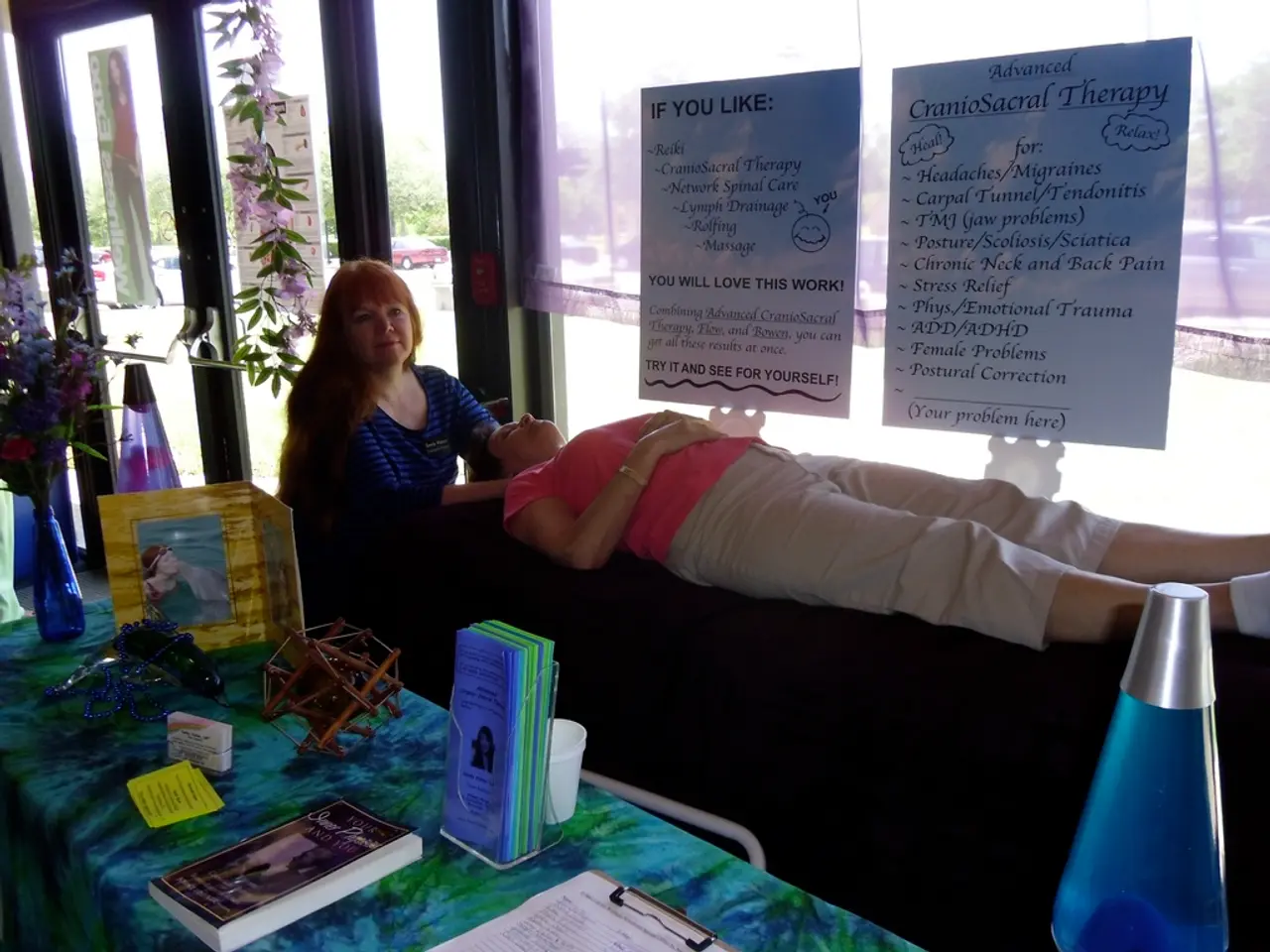Is breast oil effective in increasing breast size? Exploring advantages and potential hazards
In the realm of beauty products, breast oils have gained popularity as a natural solution for various concerns, from reducing stretch marks to promoting breast health. However, it's essential to delve into the scientific evidence behind these claims.
While certain components of vegetable oils, particularly those rich in essential fatty acids like linoleic acid, have been shown to promote cell growth in laboratory settings, this does not directly translate to an impact on breast tissue growth or breast health in humans.
Contrary to some claims, using vitamin E, cocoa butter, or olive oil has no proven effect on stretch marks. The American Academy of Dermatology reports that no home remedy for stretch marks consistently works.
Regarding breast growth, it's important to understand that this is a complex process mainly influenced by internal factors such as hormones, body weight, and aging. Unless a product can significantly change these internal factors, there is no reason to believe a topical oil could cause breast growth.
Some essential oils, like Artemisia herba-alba, have demonstrated selective cytotoxic effects against breast cancer cells in experimental settings. However, these findings are preliminary, and more research is needed to understand the potential clinical benefits or risks of essential oil use on breast tissue growth or health.
It's also worth noting that some plant-derived compounds, such as phytoestrogens, may interact with estrogen production and confer protective effects against certain types of breast cancer. However, the relationship between essential oils and breast cancer risk is complex and not straightforward.
Regular breast massage, on the other hand, can have benefits. Massage may help a person become more familiar with their breasts, making it easier to detect lumps and changes. Massage may also help with lactation and nursing-related skin irritation.
Keeping the skin moisturized is beneficial for overall skin health. Oils can seal in moisture and help the skin stay hydrated. However, there is no evidence that skin oils will directly improve breast health.
It's crucial to remember that applying oils may not be beneficial for everyone and may cause allergic reactions or skin irritation. Moreover, no studies have assessed whether certain oils can promote collagen production in the human body, or whether this could tighten the skin around the breasts.
In the end, while some components of vegetable oils and essential oils can influence cell proliferation or show anti-cancer activity in lab studies, robust scientific evidence that essential oils directly promote breast tissue growth or improve breast health in humans is lacking. More clinical and mechanistic research is needed to clarify these effects before any health claims can be substantiated.
[1] Cell Proliferation Effects of Vegetable Oils: A Review [2] Dietary Phytoestrogens and Breast Cancer Risk: A Systematic Review and Meta-Analysis of Observational Studies [3] Linoleic Acid and Breast Cancer Risk: A Review of the Evidence [4] In Vitro Proliferation of Human Cells by Vegetable Oils [5] Selective Cytotoxicity of Artemisia herba-alba Essential Oil against Breast Cancer Cells
- Research indicates that while certain vegetable oils rich in fatty acids can boost cell growth in test-tube settings, there's no scientific evidence that these oils impact breast tissue growth or health in humans.
- Contrary to some claims, vitamin E, cocoa butter, or olive oil have not been proven to reduce stretch marks effectively as per the American Academy of Dermatology.
- Hormones, body weight, and aging are primarily responsible for breast growth, making it unlikely that topical oils could cause breast growth without significantly altering these internal factors.
- Analysis shows that certain essential oils, such as Artemisia herba-alba, exhibit cytotoxic effects against breast cancer cells in experimental settings, but the clinical benefits or risks of their use on breast tissue growth or health require further investigation.
- Phytoestrogens found in certain plant-derived compounds may interact with estrogen production and possess protective effects against certain types of breast cancer, but the relationship between essential oils and breast cancer risk is complex and not straightforward.
- Regular breast massage has benefits, including aiding in breast cancer detection, helping with lactation, and soothing nursing-related skin irritation, but there's no scientific evidence that it promotes breast tissue growth or improves breast health.
- Using moisturizers or oils to keep skin hydrated can benefit overall skin health, but there's no evidence to suggest that they directly improve breast health or provide collagen production benefits in humans.




